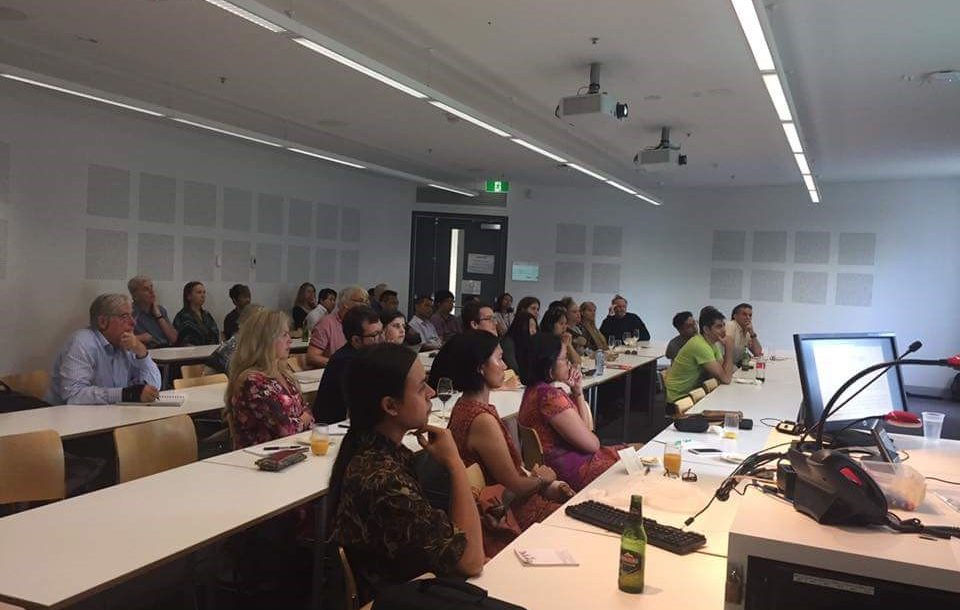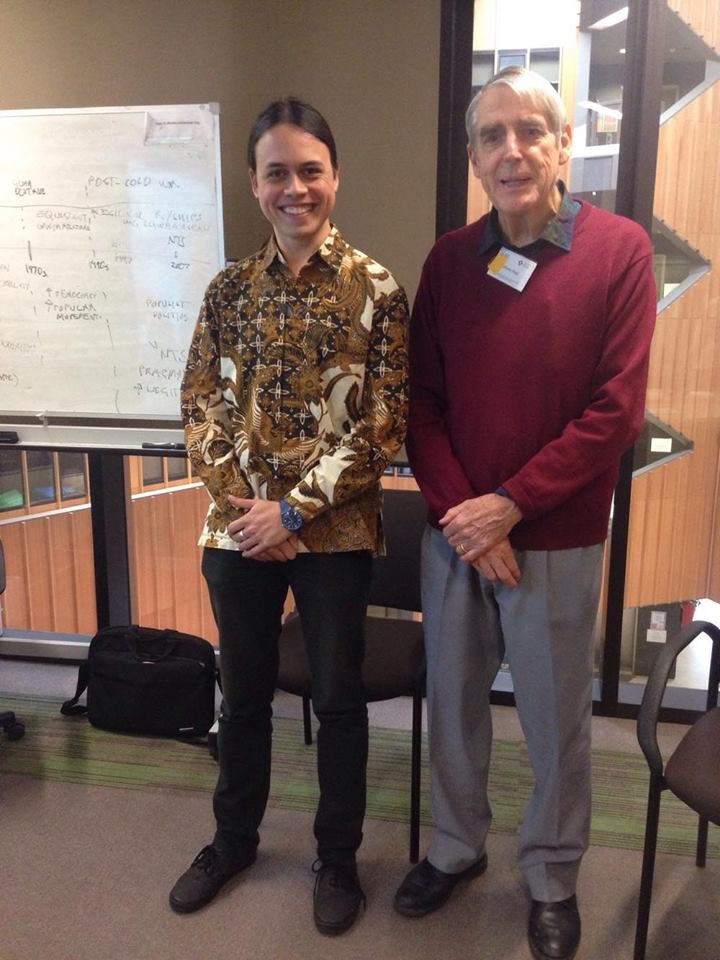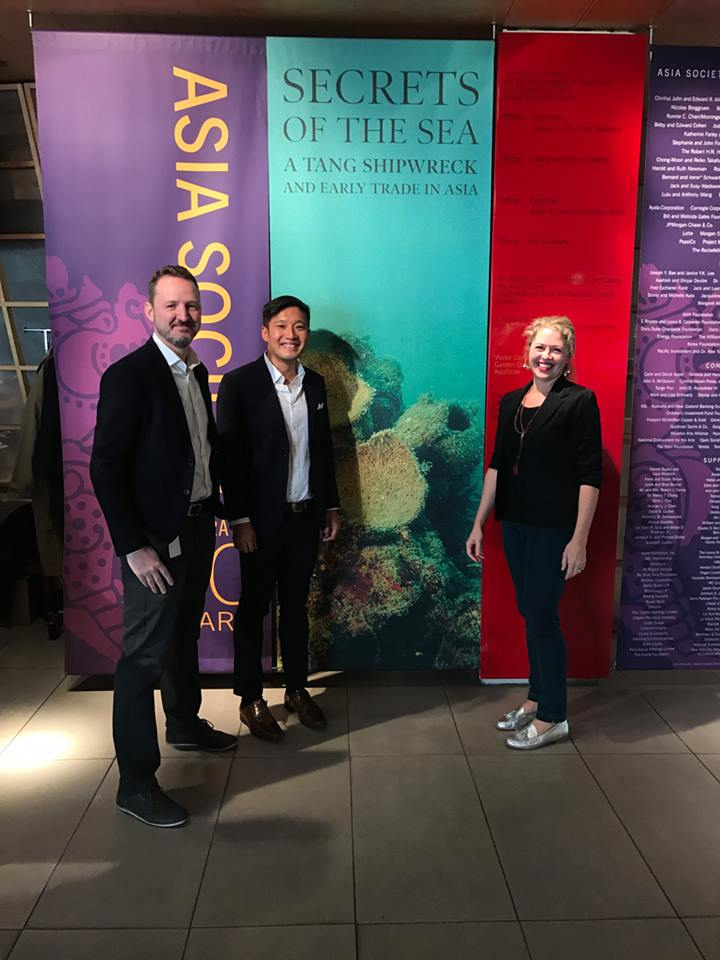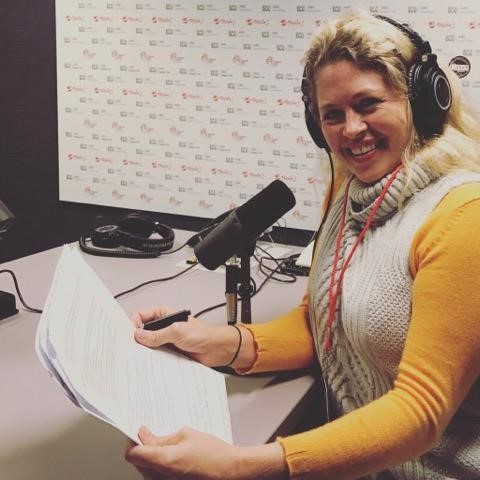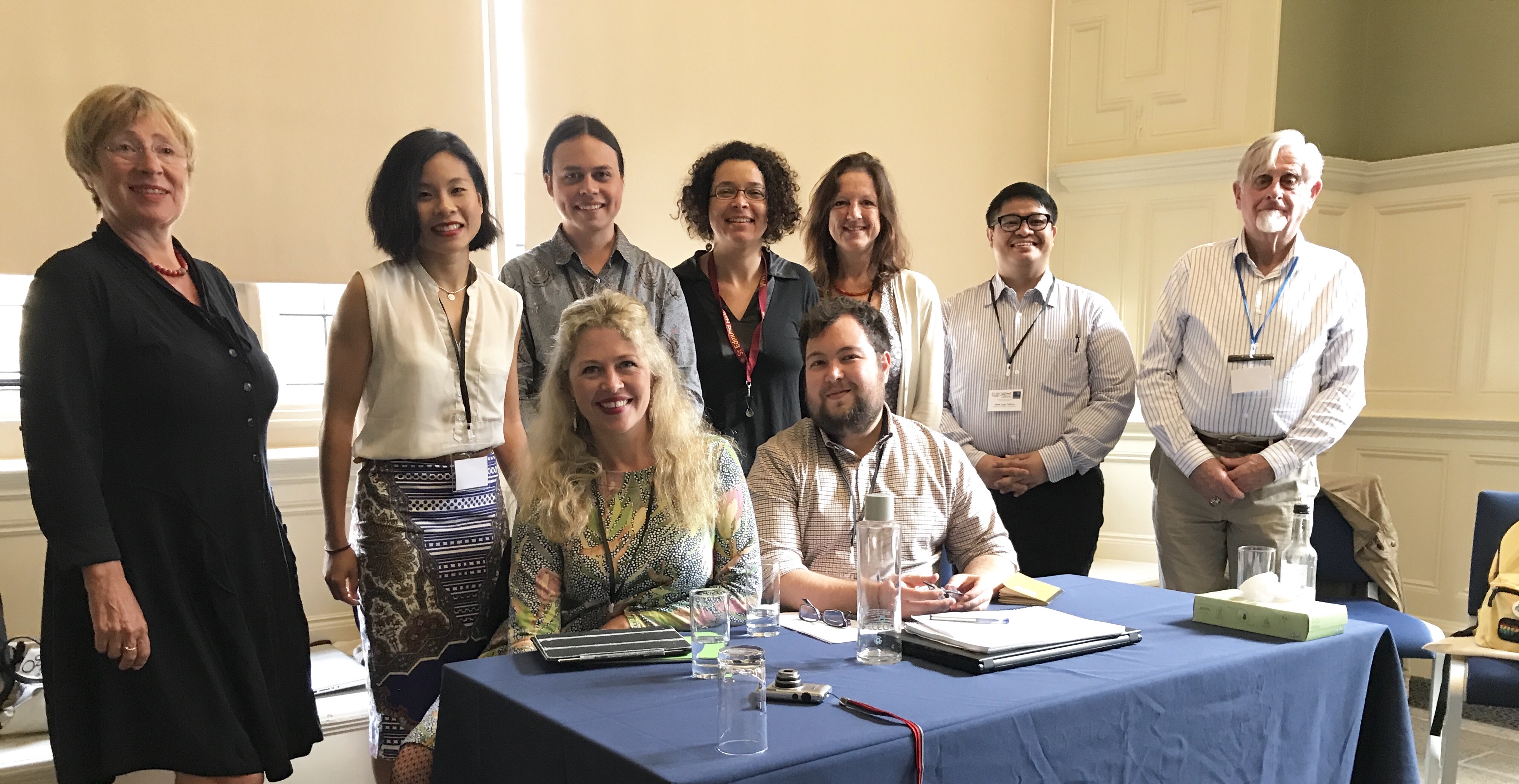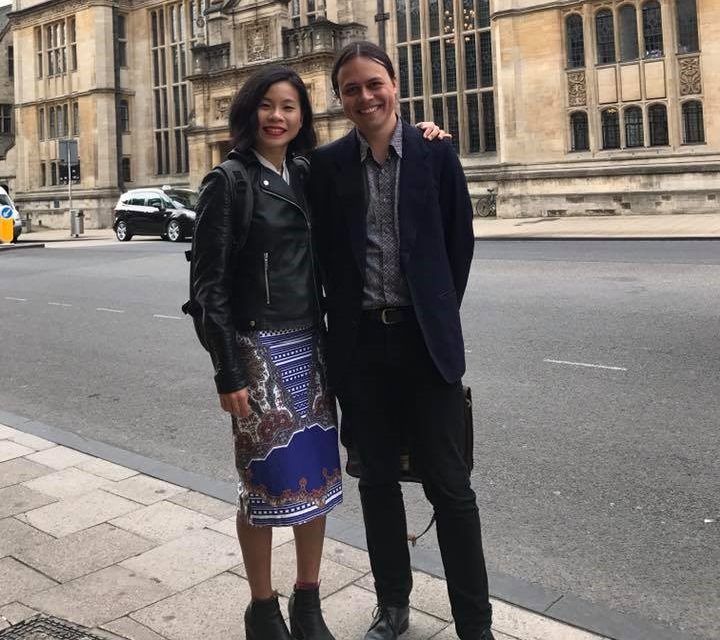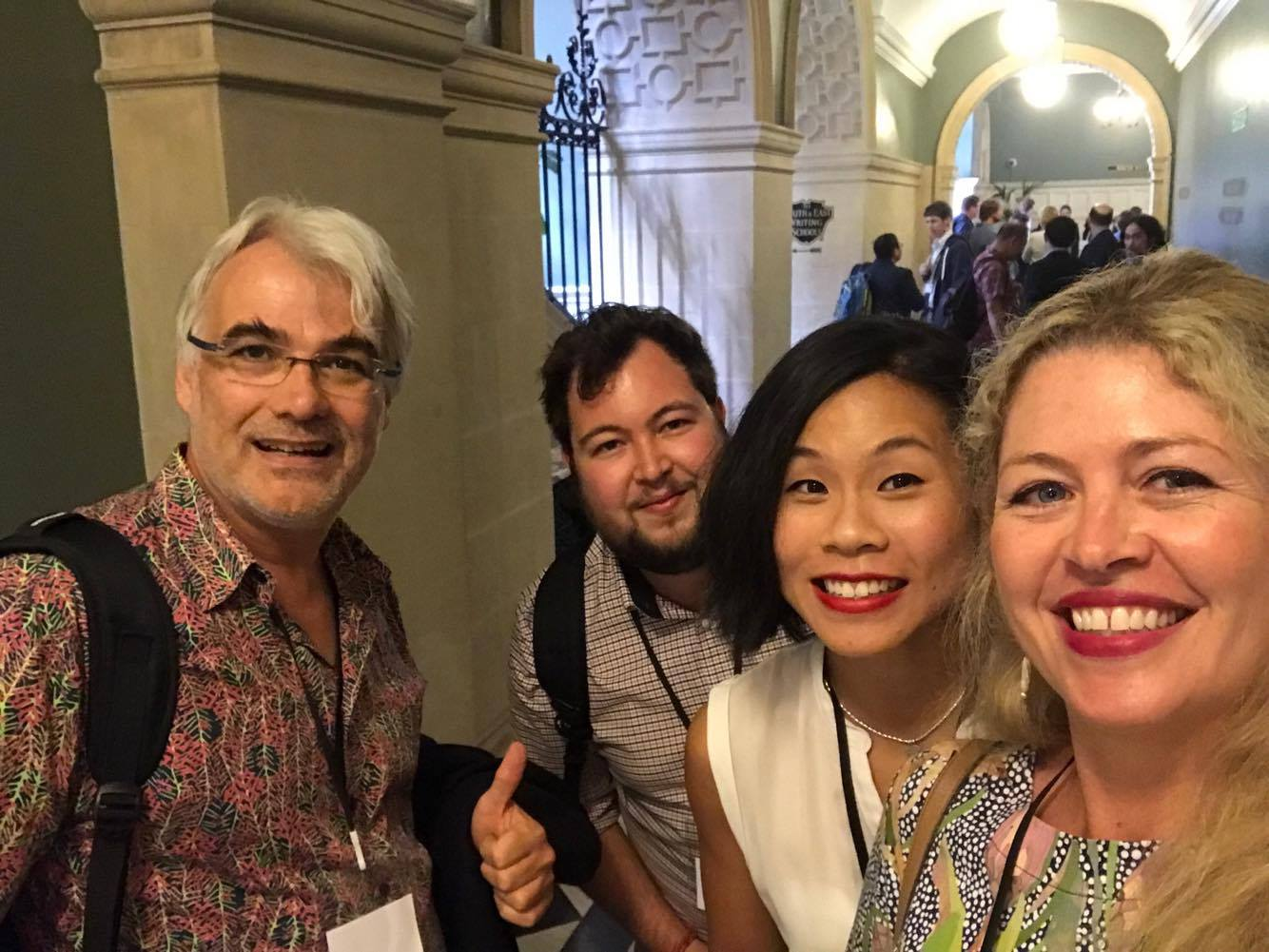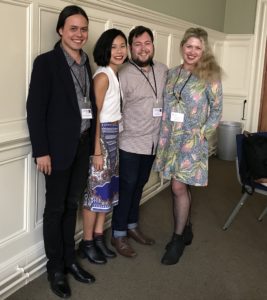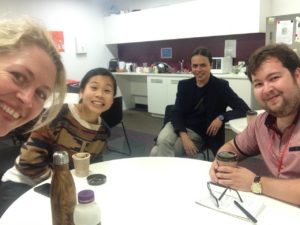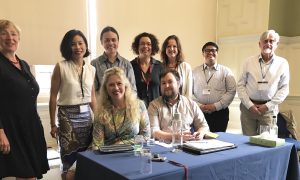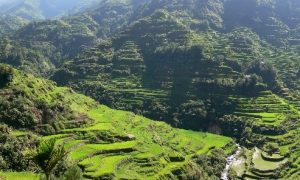Three years ago we started a small postgraduate group, PoP, Perspectives on the Past of Southeast Asia. I didn’t know then that PoP would transform my postgraduate experience. What started out as a reading group has since grown to become a launching pad for new research, a sounding board (and occasional support group) for big ideas, and a forum for sharing knowledge. I want to share with you how to create your own kick-ass postgrad group.
1. Turn up to post-grad events & make friends.
Let’s face it: postgrad life can be very lonely. You need some friends – friends who work on similar topics to you, but who also have their own special skills and areas. When you start your postgrad degree, make sure you sign up (and attend!) all those postgrad events. Get to know people. Best of all, go to events run by inter-disciplinary research centres. The founding members of PoP met on a postgraduate bootcamp organised by the Sydney Southeast Asia Centre (SSEAC), after these events, follow up with anyone you made a connection with.

2. Decide what kind of postgrad group you need & create a cool name.
What kind of postgrad group do you need? A peer support group, a Shut-Up-&-Write team or a reading group? A little of everything?
For us it was very straight forward. We each came from different disciplines, but everyone had something to contribute in terms of understanding the Southeast Asian past. We felt like there were lots of opportunities for people who worked on issues like development, policy and health, but that fewer opportunities existed for students interested in the things we were interested in – history, heritage, archaeology, performance. Our aim was to promote awareness of Southeast Asia’s past.
There are some great groups, teams and projects that work on areas like Southeast Asian Archaeology, heritage in Singapore’s heritage, Indonesian historiography. But there was no one group that all these – and other perspectives – together to understand Southeast Asia’s past.
You will also need a name that reflects your interest.
Names and acronyms are VERY important – not just in academia, but in Southeast Asia! Aim for something catchy and memorable one that also clearly specifies what it is you do!

3. Learn from each other, difference is important & you shouldn’t all agree.
A postgrad group where people all agree, and everyone is from the same discipline working on the same kind of project, is going to be boring. By having a diverse group of people you can all learn a lot from each other along the way. Some of our best learnings have come from those times when we have disagreed (dare I say, argued).
In the photo below, Wayan Jarrah Sastrawan (using his rigorous historian’s way of thinking) is trying to sort out how we all agree and disagree. This can be a really fun, and infuriating exercise, to try.
Diversity of disciplines and people is key. If we take the ideas of complex systems theory, we can say that the more diverse a group of people or a ‘system’, the more chance of generating new ideas that would not have occurred to a member of the group if they were on their own.
Most postgrads have expertise in at least two fields of study, so if you have four different postgraduates, you get at least eight different disciplinary perspectives. This of course is in addition to diversity in the form of gender, sexuality, cultural, national, age, religious and ideological. Being diverse, respectful and inclusive is vitally important for the long-term sustainability of your group.

4. Build a community, connect people & run events.
We started off with organising some seminars around our postgrad groups themes. This created a place where interested people could come together.
Lots of other people were also interested in new multidisciplinary approaches to understanding Southeast Asia. It is important to reach out to your academic community and have something unique and new to offer.
By focusing on interdisciplinarity we were able to connect with lots of people beyond our own disciplines.
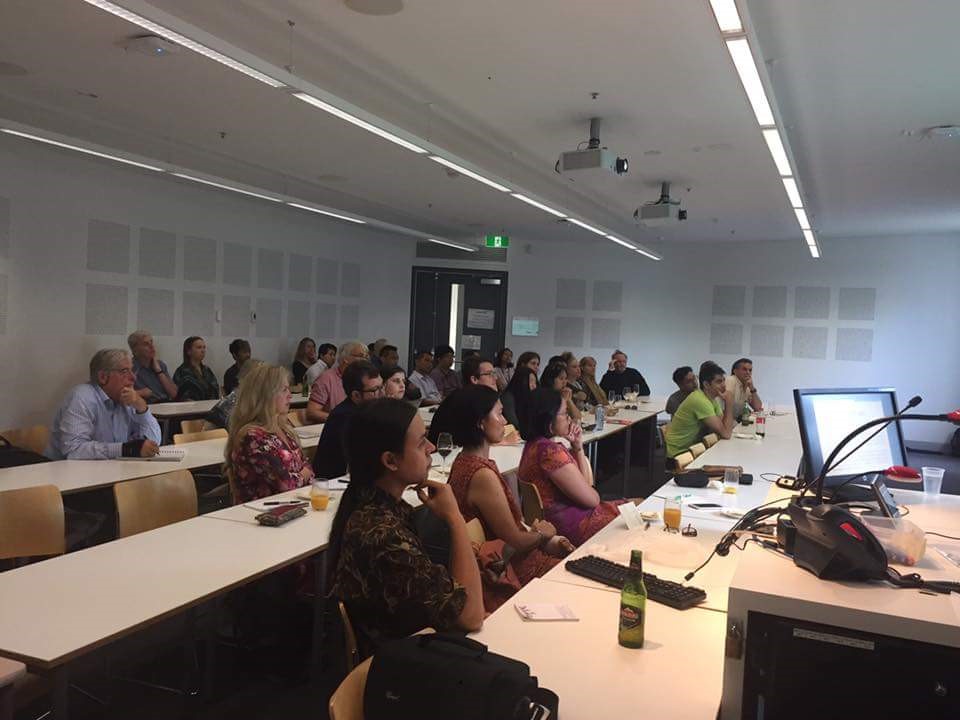
5. Be online, start a blog & social media group.
Communicating with the public and putting academic perspectives into the public domain is very important to us. We also wanted a forum to share what we were doing, and write to inform others in ways that go beyond academic articles. So we started this blog. We really wanted our blog to be successful, so we did lots of research and talked to lots of successful academic bloggers. There are two important things that really matter when creating a blog: regular content and original content.
It is much easier to run a blog with regular content if you work together as a team, tag teaming your blogging, instead of writing on your own.
We realised that there while there were blogs for specific disciplines and countries, there wasn’t yet a website that people could go to find out about the multi-disciplinary history of the whole of Southeast Asia.
We wanted to grow our community further by telling people about our events, and talk to other researchers around the world so we created a Facebook group for people to share everything from events, ideas and new research.
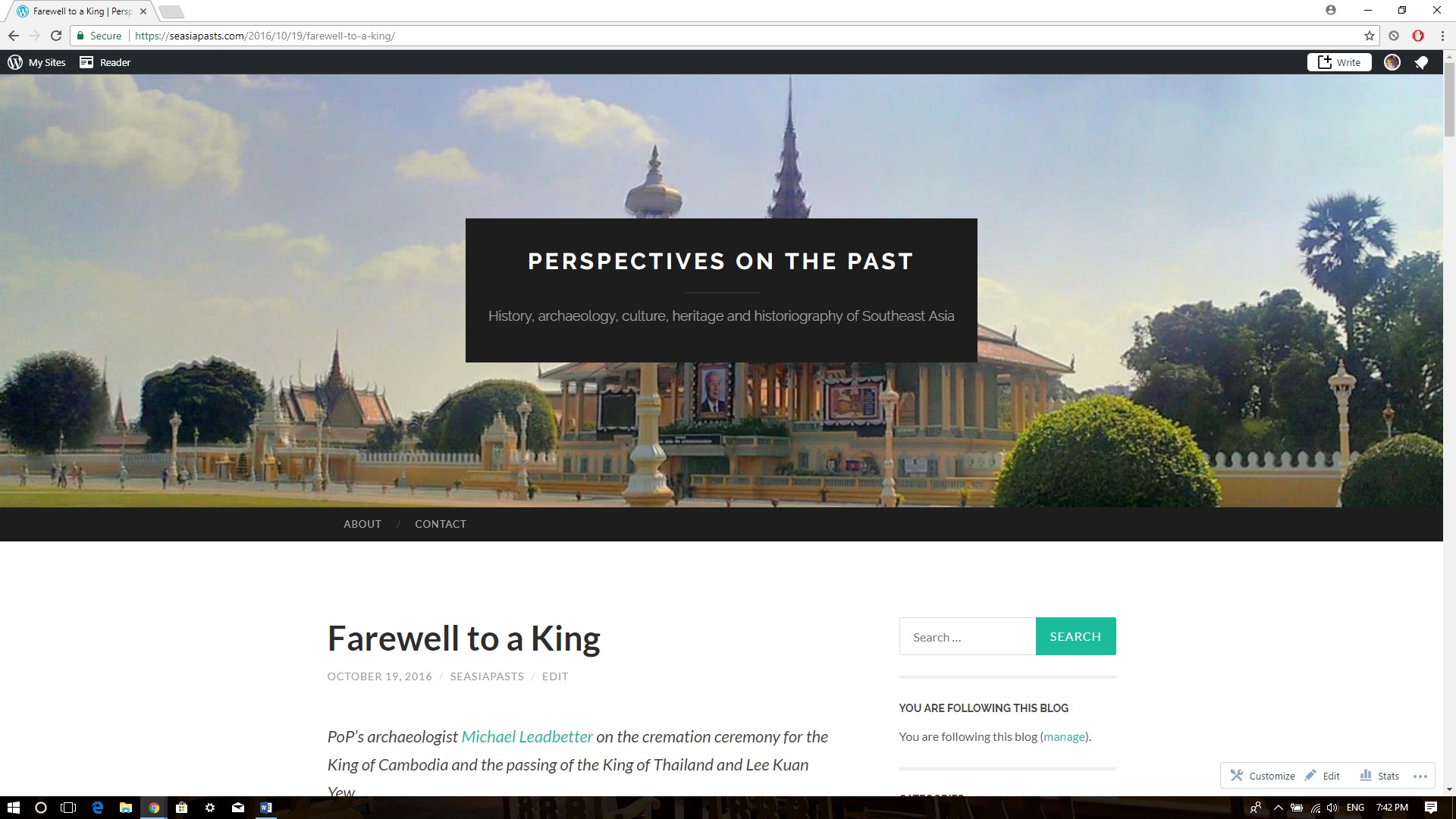
6. Attend other people’s events, talks & conferences.
Be a good academic citizen. Attend other people’s events and talks; best of all, go as a group. This will make meeting lots of new people easier, while also supporting your peers, professors and research groups. This is a great way to find new opportunities and ways of collaborating with others. Also attend local conferences and events if you can. Show up and support each other.
7. Edit each other’s work, then publish.
You will all have different strengths and weaknesses. Read and give feedback on each other’s work. Also try and publish where you can.
Here Natali and I published in a special Archaeology and Heritage issue of the TAASA Review.

8. Push yourself & seize every opportunity!
Publish and communicate beyond your blog! Share the knowledge and ideas through forums like The Conversation and do interviews on national and local radio.
Challenge yourself and encourage each other.
9. Don’t be afraid to think big, apply for funding & organise conference panels.
We decided to organise a joint conference panel at the EUROSEAS 2017 conference at the University of Oxford. We got together and proposed a panel on new approaches to ritual, a topic we could all speak to. Researchers from around the world wanted to join us so we made a double panel.
We searched out lots of funding opportunities and received travel grants from the Sydney Southeast Asia Centre.
We have also applied for funding to bring different professors from Southeast Asia and America to visit us in Sydney to share their expertise and knowledge.
10. Not everything will go according to plan, that’s when your need friends.
Not all your events will work out, not all your research will go the way you wanted. You will have challenges and scary things happen along your postgraduate journey. Articles will get accepted, then rejected. Conference audiences will be hostile. Endnote will definitely crash. It is important to have friends who understand what you are going through, and who are there to listen and encourage you!
 Facebook
Facebook  Twitter
Twitter  Soundcloud
Soundcloud  Youtube
Youtube  Rss
Rss 